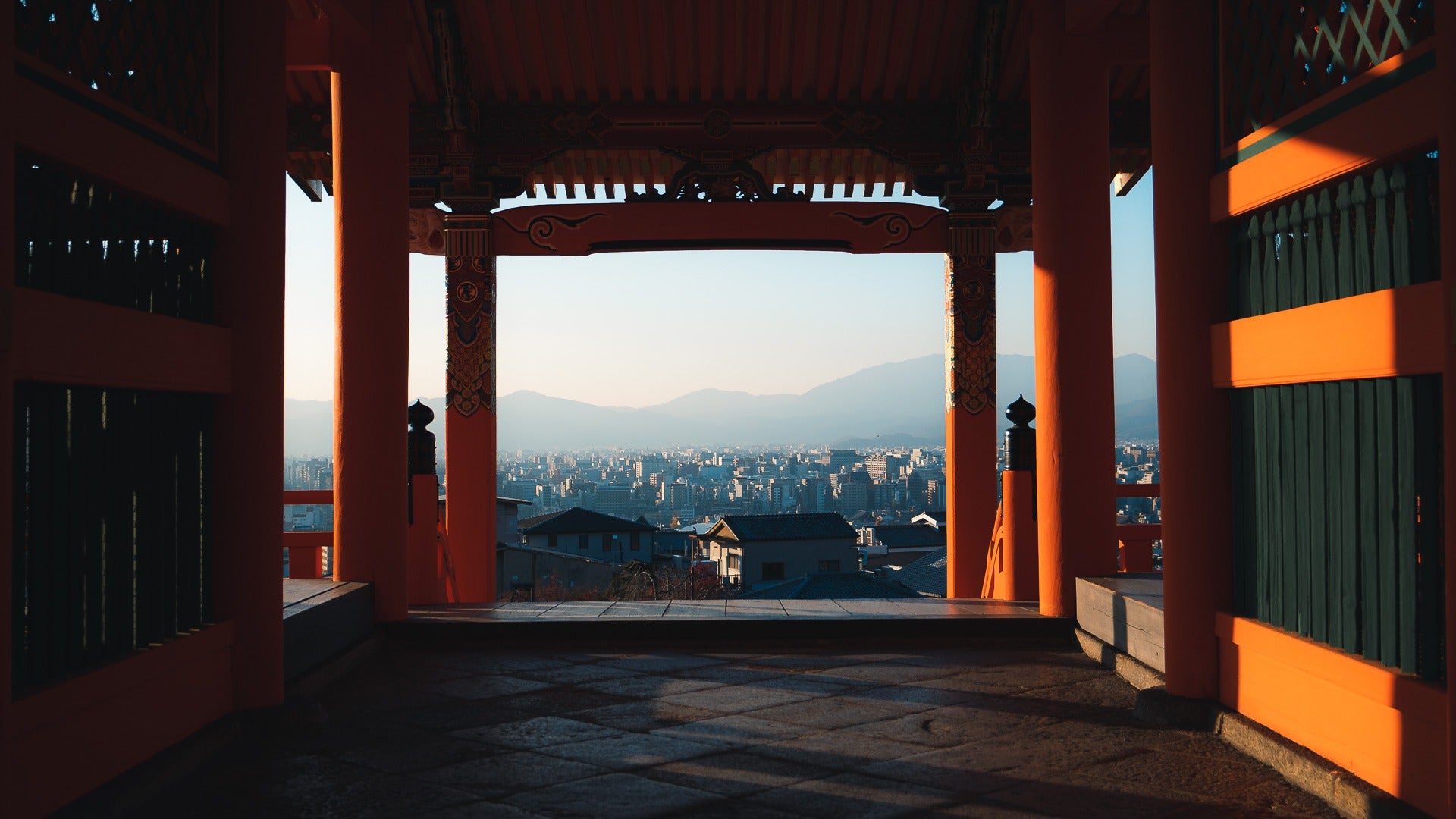The cost of travel in Japan is a question I get often, and the answer is; well, it varies.
How long is a piece of string? - the old adage goes.
The thing about living in Japan is that although it’s not the cheapest place for a backpack adventure up and down the country, you can either live it on the cheap or you can live it up - there’s a budget to suit every person.
Certainly, you could think about renting an apartment or buying property, and it would certainly be cheaper over a longer period of time. But the keyword for this article is “travel”. This what I’m doing now: the freedom to move where you want, whenever you want and see the entire country, while keeping costs fairly similar to what it’d be like if you were to just stay in one location.
In this guide, I’m going to be laying out 3 tiers of expenses for each category of spending you might encounter when considering your travel budget. These are ‘budget’, ‘comfortable’, & ‘luxury’.
I personally spend more towards the comfortable/luxury area in Japan, because even though things can get quite expensive in some areas, the difference in quality of life (and sanity) can sometimes be a big jump for just a few dollars extra.
But of course, decide for yourself. This is how much it costs to travel in Japan permanently:

Accommodation
If you’ve done any travels in the past, you’ll know that accommodation and transport (inc flights) are usually the most expensive part of any experience, and when living on the road, that’s no exception.
Budget (2000 - 5000 yen per night)
From random bunks in some strange apartment, capsule hotels, weirdly themed motels, and everything in between, there’s something here for everyone.
Capsule hotels are the equivalent of a backpackers hostel in Japan, and I find myself using them quite often for a few weeks at a time. Although they’re not private, they’re always clean, well maintained, and there’s plenty around.
One of my favourite stays in this price range is: The Share Hotels Lyuro. It’s in a quiet part of town, everyone is super chill and quiet, and there’s a nice downstairs area to work in if you need it.
Comfortable (5000 - 15,000 yen per night)
There are also some upscale capsule hotels that come with niceties like reclining beds, co-working spaces, free food and coffee, etc.
It’s also in this bracket where you start to get into the budget hotel range. Especially in places outside of Tokyo, it’s not uncommon to get a budget hotel for less than $100AUD per night.
One of my favourite stays in this price range is: The Millennials Shibuya. It’s right in the middle of everything, and although it’s typically more expensive for a capsule hotel (sometimes bordering on budget hotel prices), it also comes with high tech beds that fold from flat to a sofa, they have free coffee and beer during happy hour, and they have one of the cosiest co-working spaces I’ve found in Tokyo that you can use for free when you stay.
Luxury (15000 yen+ per night)
Well, the sky is the limit really. If you’re spending this much, you’ll be in a nice hotel room with most or all of the trimmings. But chances are if you’re reading this article, you probably didn’t need to know this part anyway.

Food & drink
Ah! My favourite part of anything to do with money. Food! And in Japan, there’s plenty of ways to spend your money on it.
Budget
In Japan, Combini-culture (convenience stores) is a really big thing. There are combini’s literally everywhere, and most of the time, they have a fantastic range of food on the cheap. You could walk out of a combini with a full sized meal, a drink and maybe a dessert for less than 1000 yen. If you’re looking for a low-budget way to keep your costs low during your travel in Japan, this is it.
Alternatively, there are also many types of common, cheap cuisines you can pick up for less than 1000 yen too. Look out for 600 yen bowls of gyudon (beef and rice), 700 yen plates of curry, and 800 yen bowls of ramen. These prices Japan-wide are fairly common, however in Tokyo, these prices are harder to find. They’re out there, but they’re more common around the non-touristy areas.
And of course, I can’t forget to mention the cheapest of them all: Home cooking. Buying groceries at a supermarket (スーパー in Japanese, translated to “Supa”) is always going to be the cheapest option wherever you are in the world, so if you’re strapped for cash, do that.
Comfortable
Of course, you can get a bit fancy and start to enjoy more upscale versions of those foods. My favourite bowl of ramen at Fuunji in Shinjuku is around 1500 yen with toppings, for example.
It’s not uncommon to spend 2000 yen on good sushi too. Generally, between 1000-2000 yen is a good mid-point, and past that you’re starting to eat for the ambience and the experience.
Luxury
I once had an assortment of 10 pieces of Sushi that costed 12000 yen a plate.
I mean, it was great, don’t get me wrong, but personally I wouldn’t pay 10x the price for 1.5x better taste. That’s just me though - my friends say that my taste in Sushi is probably dead. They’re probably right.
That being said, there are a ton of luxury-style meals in Japan. 10 course degustations, wagyu beef, unique kinds of seafoods, all sorts of stuff. I won’t judge you. Everyone’s travel in Japan is always different.

Entertainment
Of course, travel in Japan wouldn't be complete without things to do, right?
Budget
There’s always free, right?
Entertainment is a hard one because there are many kinds, and many different people look to many different places for entertainment.
But when it comes to the budget-friendly traveller, free is always an option.
Heading to lookouts, roaming the streets and discovering a place, heading to local museums with no entry fee, or people watching etc. there are always things you can do on the cheap.
Comfortable
Japan has so many things to do, I surely can’t name them all. But some of my favourite things to do are: Going to observation decks in every city (usually between 500 - 3000 yen), art parks and museums (300 - 1000 yen), visiting temples (200 - 600 yen), finding and eating the best ramen (this is entertaining for me).
Luxury
Then there are of course the more expensive things to do in Japan, such as Snowboarding and Skiing (40k yen for a 7 day lift pass etc), car hire for a road trip (30k - 60k yen for 7 days), eating experiences, traditional ceremony experiences, cultural experiences - you name it.

Transport
Ah, the tactical part of how you would actually travel in Japan.
Budget
Transport does end up being a big part of your expenses, and luckily general transport like busses and trains aren’t that expensive here, plus they always run on time and run fairly frequently.
Trains are generally cheaper than busses and are my preferred method of transport. You can also go further for your dollar too. Most trips will cost just a few hundred yen unless you’re going really far.
Comfortable
Busses are accessible too, although they’re a little daunting to ride since there’s so many different orders of operation depending on which part of the country you ride on - do you enter through the front or the middle? do you tap as you get on or as you get off or both? do you pay when you’re inside the bus or do you pay first?
The answer: it changes in every city. Good luck.
But the combination of both trains and busses will take you to almost anywhere you want to go. Japan is very connected public transport-wise. And if all else fails, then you can go for a taxi.
A quick note here about Shinkansen’s (bullet train) vs planes when planning your travel in Japan. To the major cities, most of the time flying is cheaper than catching the bullet train. You can get a budget airline return flight from Tokyo to Kyoto for 10 - 20,000 yen, where the same on a bullet train would cost you almost twice that price.
That being said, with many airports being an hour away from their cities, much of the time it actually ends up taking longer in total to get to your destination, so consider this if you don’t have time on your hands.
Luxury
Ah, Taxi’s. Taxi’s are really expensive here.
Uber and ridesharing in general isn’t really a thing in Japan, so expect to pay anywhere between 3000 - 7000 yen for a mere 15 minute ride - although the automatic opening doors are kind of cool.
Miscellaneous
Travel insurance
Just throwing this in here because it’s important regardless of where or what you decide to do when you travel in Japan. You’ve gotta have good insurance, even if you’re living on the road.
For me, I use a mix.
For my gear and valuables, I use Photographers insurance supplied by a company in Australia called AON. This costs me around $700AUD a year.
For medical, I use a company called Safety Wing, which costs around $37USD a month (it’s a US company).
And from there, my various credit cards protect me from random travel mishaps that might happen every now and then.
Internet, subscriptions, digital etc.
This is a bucket for all of that stuff. Stuff that you don’t really notice but they add up over time. All your subscriptions to Netflix, Spotify, Apple Music, Adobe, Patreon, website, hosting, and all that other stuff; count it.
I also have a global SIM by a company called Knowroaming which I use exclusively. For $3.33USD a day I can have unlimited, fast, internet access in over 125 different countries, and even with spending so much time in Japan, this price is very competitive compared to what’s available locally (and not to mention fast, unlike some other local budget options in Japan.
What do I personally spend?
Well, just to keep my own sanity, I like to spend just a little bit extra on some of the nice things. I rotate between (the more expensive) capsule hotels, and switch to normal hotels every fortnightish (depending on if I’m moving cities or not) - as an introvert, I need some privacy and alone time to recharge.
Typically, I’m spending anywhere between 5000 to 15000 yen a night for my accommodation.
Food-wise, I’m actually pretty cheap. On a normal day, I’m only ever eating maybe 2 meals (I fast in the morning), I have a taste for cheap sushi (don’t judge me, I just don’t care for expensive sushi), ramen is cheap, and Japanese curry is even cheaper.
Typically, I’m spending anywhere between 1000 to 3000 yen a day, unless I’m out with friends drinking or dining.
Entertainment-wise, unless I’m in a new city I haven’t been to, it’s not a daily expense. So let’s chalk this up to maybe 1000 yen a week, or 140 yen a day.
Transport-wise, I move around a lot. I catch mostly trains, but if I’m in an area that’s fairly spread out with limited train access like Sapporo, I catch busses too.
Typically, I’m spending anywhere between 300 to 1000 yen a day. Maybe more if I’m in a new place, but it averages out over time.
For everything else, I have subscriptions to: iCloud, GSuite enterprise, Crunchyroll, AnimeLab (I watch a lot of anime), a meditation app, Adobe, accounting software, website hosting, Spotify, Lingodeer (to learn Japanese), a writing app, a global SIM card, photographers insurance, and medical insurance.
All of these subscription expenses break down into a neat daily amount of $15AUD, which is 1,100 yen.
So, all up, I’m looking at around 7500 to 20,240 yen a day. Let’s sit that in the middle and say 14000 yen, or $187AUD, or $128USD a day on average.
That’s my personal number and that’s what I can comfortably afford. On some days it’s much less, and on some days it’s much greater (I literally just bought a $1000+ snow jacket the other day, and then decided to fast the entire day and not spend anything on food). It varies, and for sure this number isn’t the right number for you, it’ll be more or it’ll be less.
But on the whole, you can live a budget life in Japan on the road for down to 4000 yen a day in some areas, but doing that in Tokyo is kinda tough.
For me, a fairly comfortable quality of life is worth paying a little extra for, but if I’m ever strapped for money, I know I could easily cut my costs down to less than 7000 yen a day and still be decently comfortable.
What will it cost you?
Well, that’s it. That’s how much it costs to travel in Japan permanently.
Unfortunately it's not cheap, but what you get in return from this country is worth the extra price in my opinion.
Let me know what your costs might look like, and if you have any questions, feel free to leave a comment below!



